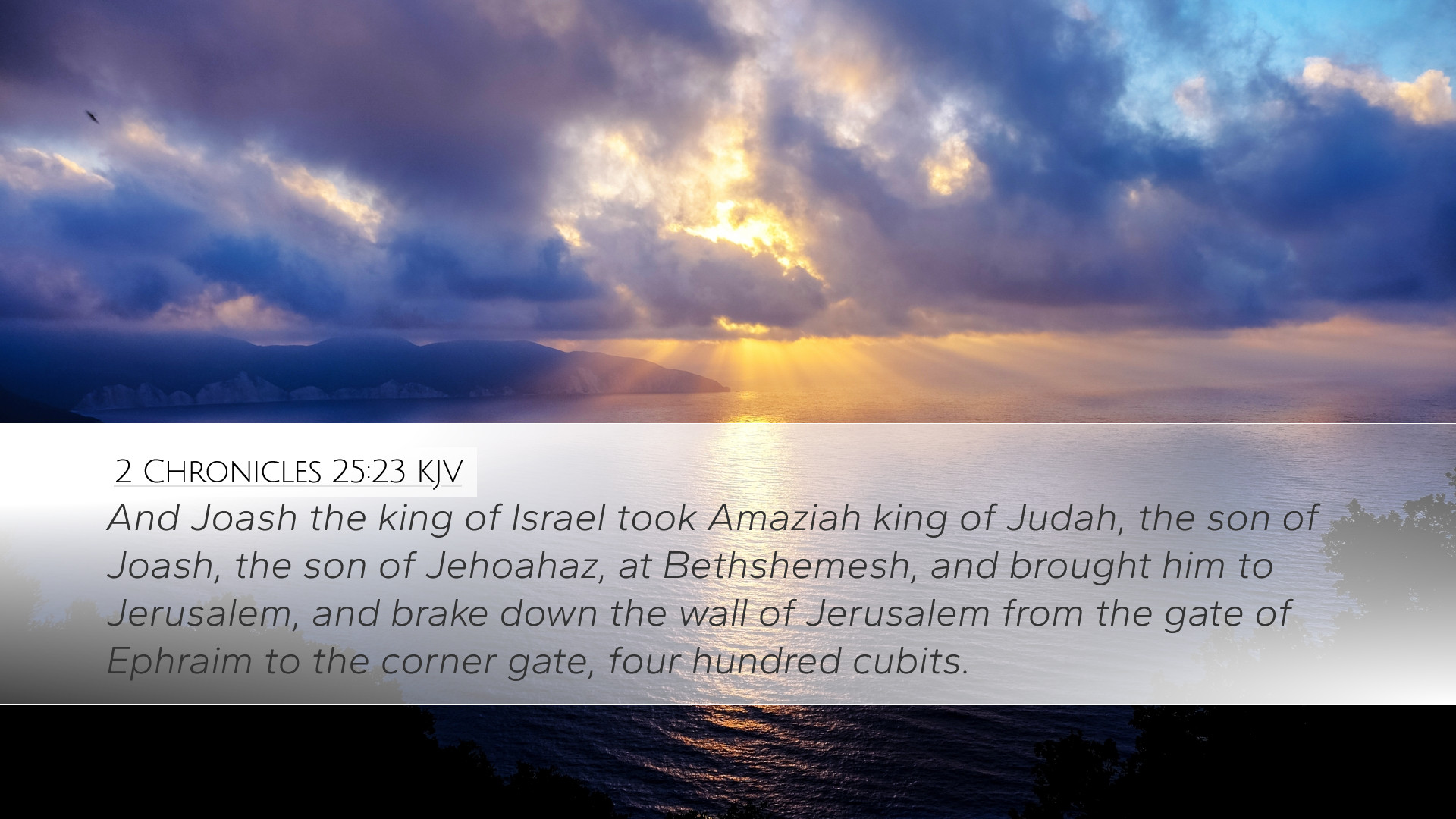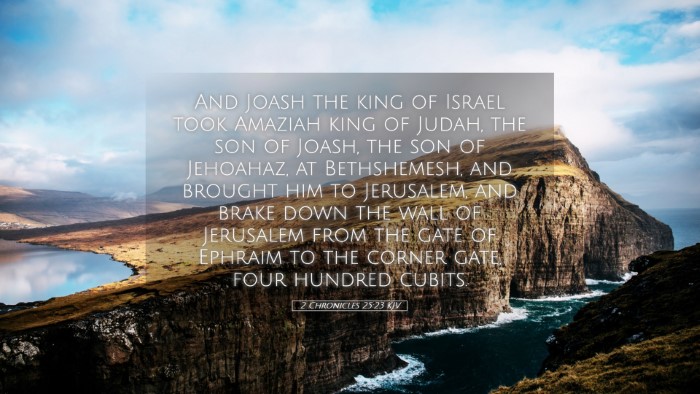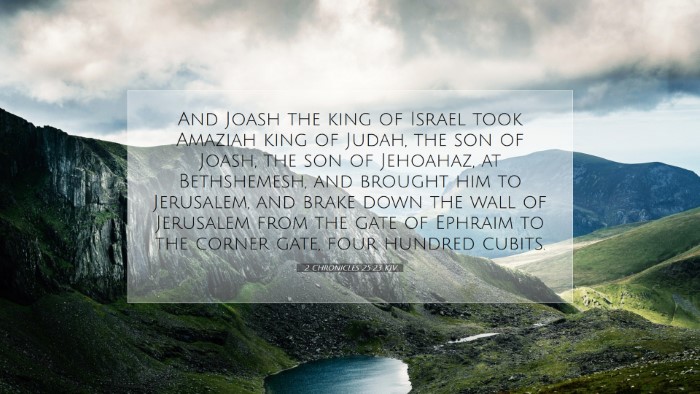Commentary on 2 Chronicles 25:23
Verse: "And Joash the king of Israel took Amaziah king of Judah, the son of Joash, the son of Ahaziah, at Beth-shemesh, and brought him to Jerusalem, and brake down the wall of Jerusalem from the gate of Ephraim to the corner gate, four hundred cubits."
Introduction
The narrative surrounding the conflict between Joash, the king of Israel, and Amaziah, the king of Judah, reveals significant theological, historical, and moral lessons for believers. This commentary aims to draw insights from public domain sources while providing a comprehensive examination of the scripture.
Historical Context
To fully appreciate the events surrounding 2 Chronicles 25:23, we must consider the historical backdrop of the divided monarchy. The kingdoms of Israel and Judah often found themselves in conflict, reflecting broader themes of fidelity, leadership, and the consequences of divine disfavor as summarized by Matthew Henry.
- Division of the Kingdom: After Solomon's reign, the kingdom split, leading to differing alliances and conflicts between the two nations.
- Amaziah's Reign: Amaziah was a king who alternated between following the right path and engaging in idolatry, which ultimately resulted in his downfall.
- Joash's Position: Joash, the king of Israel, was a formidable leader who had established himself as a powerful ruler, bringing a sense of strength in Israel while manipulating Judah's vulnerability.
Breaking Down the Verse
This verse encapsulates critical events that mark a dramatic point in the clash between these two kings. The elements in this account are worthy of exploration:
- The Capture: Joash's act of taking Amaziah signifies a tactical advantage, demonstrating military prowess and the consequences of poor leadership on Amaziah's part, as noted by Adam Clarke.
- The Location - Beth-shemesh: This area holds pivotal importance as it was a site of previous conflicts and showcases the ongoing struggle between Judah and Israel.
- Destruction of Jerusalem’s Wall: The breaking down of Jerusalem’s wall signifies not only a military victory but a deep spiritual and communal loss for Judah, which Henry observes as a metaphor for divine judgment against unfaithfulness.
Theological Implications
The actions of Joash and Amaziah underline essential theological truths that resonate throughout scripture:
- Divine Sovereignty: This event speaks to the overarching narrative of God’s control over nations. Albert Barnes highlights that the political machinations are ultimately under God's authority, reinforcing His role as the sovereign ruler.
- The Consequences of Idolatry: Amaziah’s downfall is portrayed as a result of his idolatrous practices, showing that straying from God’s ways leads to dire consequences.
- Judgment and Mercy: The destruction of the wall contrasts the mercy of God that He often shows to His people, even amid their failings; a reminder that judgment may come, but hope in redemption remains.
Moral Lessons for Believers
This episode in the chronicler's account is replete with moral teachings that can be applied to the lives of believers today:
- The Importance of Righteous Leadership: Amaziah's failure serves as a warning against the dangers of leading a people astray and the impact that leaders have on national faithfulness.
- Vigilance Against Compromise: The text encourages believers to remain steadfast against the encroachments of culture and idolatry that seek to compromise their faith.
- Evaluating Alliances: The relationship between Judah and Israel prompts a reflection on the importance of careful discernment when forming alliances and friendships.
Application for Ministry
For pastors, theologians, and students of scripture, this verse provides a rich ground for reflection and application:
- Encouragement toward Faithfulness: Leadership must exemplify faithfulness to God in both personal and communal realms.
- Preaching Judgment Responsibly: As leaders convey messages about divine judgment, they should also remind their congregations of God’s mercy and redemptive plans.
- Understanding the Historical Context: Knowledge of historical contexts can lead to deeper insights during sermons and teachings, enhancing understanding of the scripture’s relevance to contemporary issues.
Conclusion
In closing, 2 Chronicles 25:23 is more than a mere historical account; it stands as a vivid reminder of the intertwining of faith, politics, and divine judgment in the life of God’s people. Through the lens of public domain commentary, we glean insights that are applicable for leading, teaching, and understanding the profound complexities of faithfulness in a divided world.


